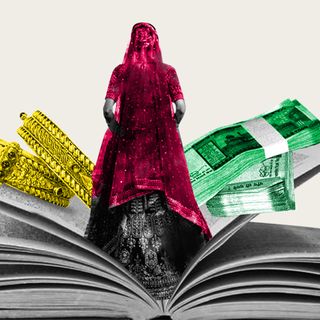India’s current passport rules for transgenders personsrequire them to produce a certificate proofof gender reaffirmative surgery. These not only violate an individual’s right to self-determination in terms of their gender, but also glaringly overlooks a landmark Supreme Court judgment that cemented some rights with respect to identity and dignity, a bench of the Delhi High Court observed recently.
“You can’t insist on somebody to undergo sex-change operation for that (passport) purpose. You can classify such persons as transgender and then there can be a sub–classification into trans man, trans female, whatever the orientation of the person is, whatever the person wants to declare himself or herself as, but where is the question of insistence on surgery?” the court asked.
The bench, comprising acting chief justice Vipin Sanghi and justice Navin Chawla, was hearing Lasya Kahli Singh’s petition. Singh, a trans woman challenged the current passport rules, according to which a transgender person has to present a gender reaffirming certificate in order to get a passport; the petitioner was able to procure an Aadhaar card, PAN card, and a Voter ID withtheir changed name and gender — but not a passport. The petitioner tried changing her name and gender from male to female in December 2019; to which she was told to produce a “sex change certificate in hand by a surgeon” as per the Passport Rules, 1980. Only the certificate, a piece of paper could recognize the said person as male or female according to the official rules.
The insistence is discriminatory and exclusionary. A surgery to identify or change one’s sex or gender violates an individual’s choice, the plea stated, as reported by LiveLaw.
In 2014, in the NALSA vs Union of India case, the Supreme Court granted constitutional recognition to transgender people as a third gender and gave them the right to self-determination, and the right to have a family. In other words, the court affirmed trans persons’ right to state their gender without requiring external “proof” or validation from a third party — this is crucial toward ensuring bodily autonomy and dignity.
Related on The Swaddle:
What a Transgender‑Friendly Health Care System Would Look Like
Notably then, the Delhi High Court observed: “As per NALSA judgment, they have the right to decide their self-identified gender. That right was upheld. It means that a transgender person will himself or herself decide the gender and you will abide by that. This insistence is violative of Article 21 right.” Article 21 of the Constitution guarantees the fundamental right to life and personal liberty.
The said requirement to present a certificate has prevented people from getting their passports that accurately reflect their gender; making them “illegal and unconstitutional,” as the plea stated.
“Allowing transgender people to legally change their gender marker on official identity documents is essential to respect their dignity and reduce the stigma and discrimination they face,” researcher Alexandra Oncea noted. “However, around the world, transgender people are often legally prevented from doing so, or when it is possible, they must meet unclear, prohibitive, or restrictive requirements such as having to undergo a gender-reassignment procedure or being diagnosed with so-called ‘gender identity disorders.'” The procedure to get a passport, which requires a certificate or undergo a sex-change operation, then becomes another prohibitive measure that impinges on individual dignity.
As Oncea stated, “such requirements are in direct breach of transgender peoples’ rights, such as their right to bodily integrity and their right to be free from torture.”
Legal recognition of one’s identity is a fundamental ask for any being. That one may be compelled to undergo a sex-change operation, or produce a certificate, to acquire this speaks to a systemic ignorance and personal violation.




